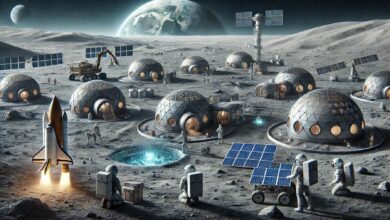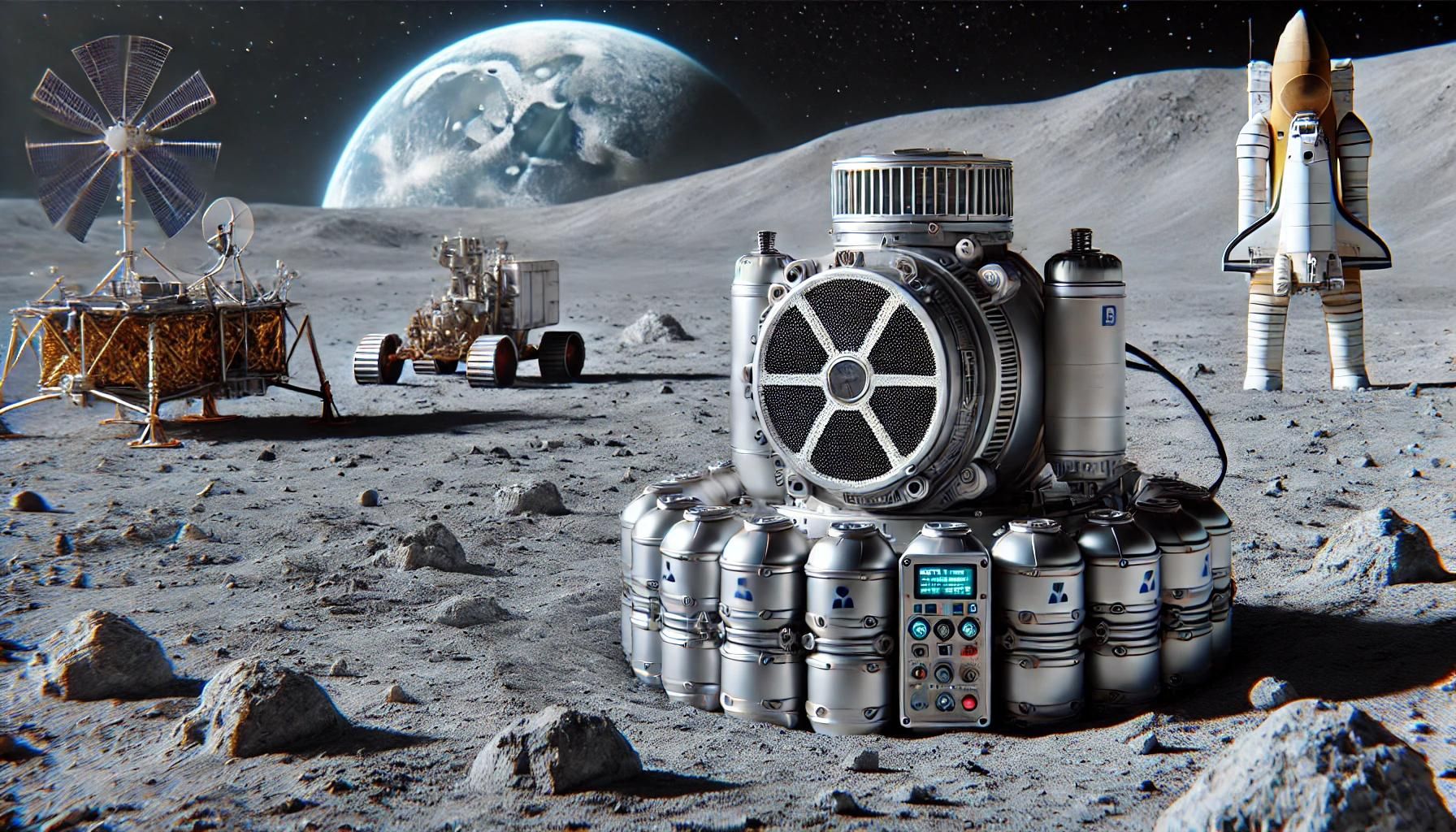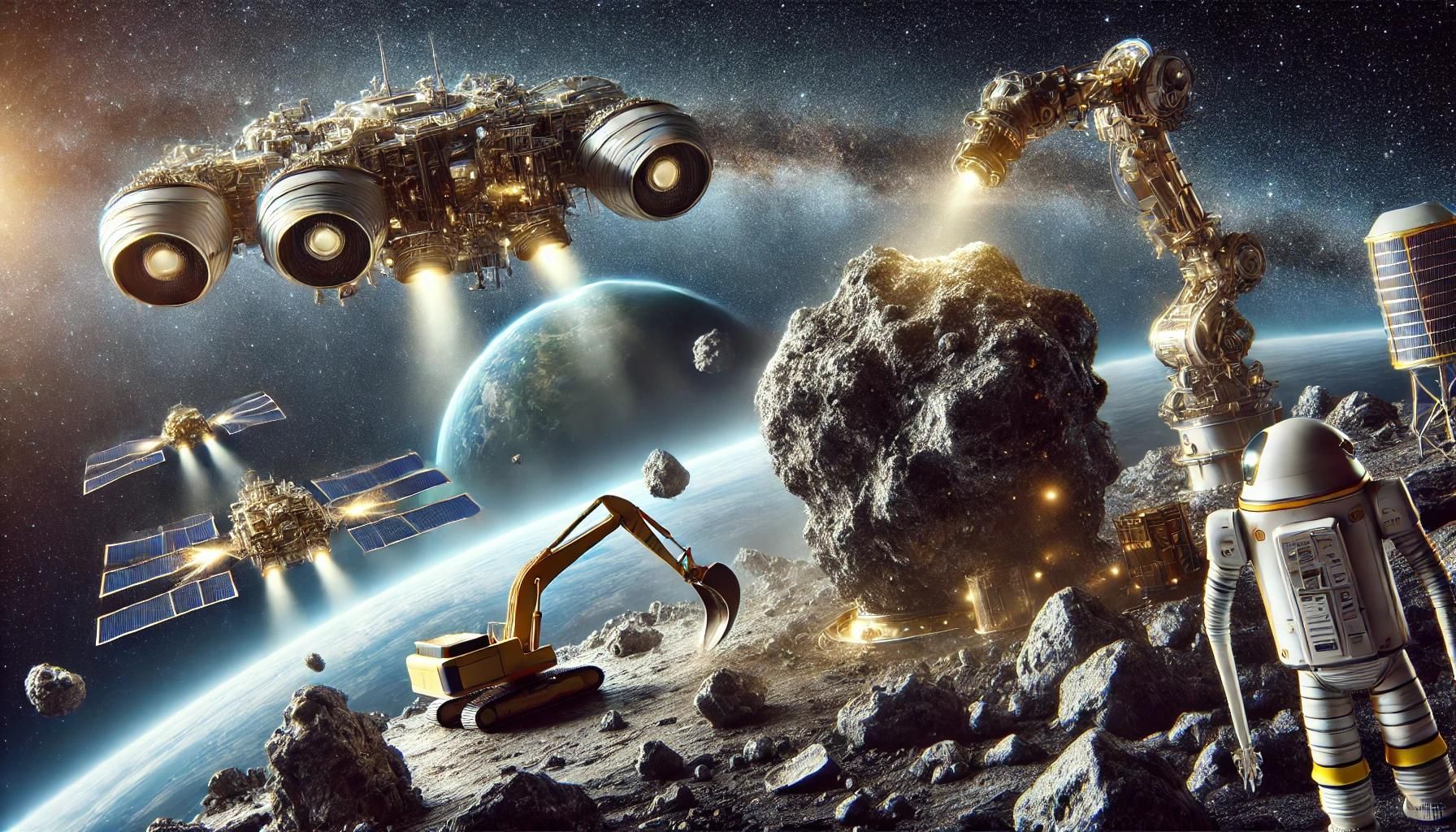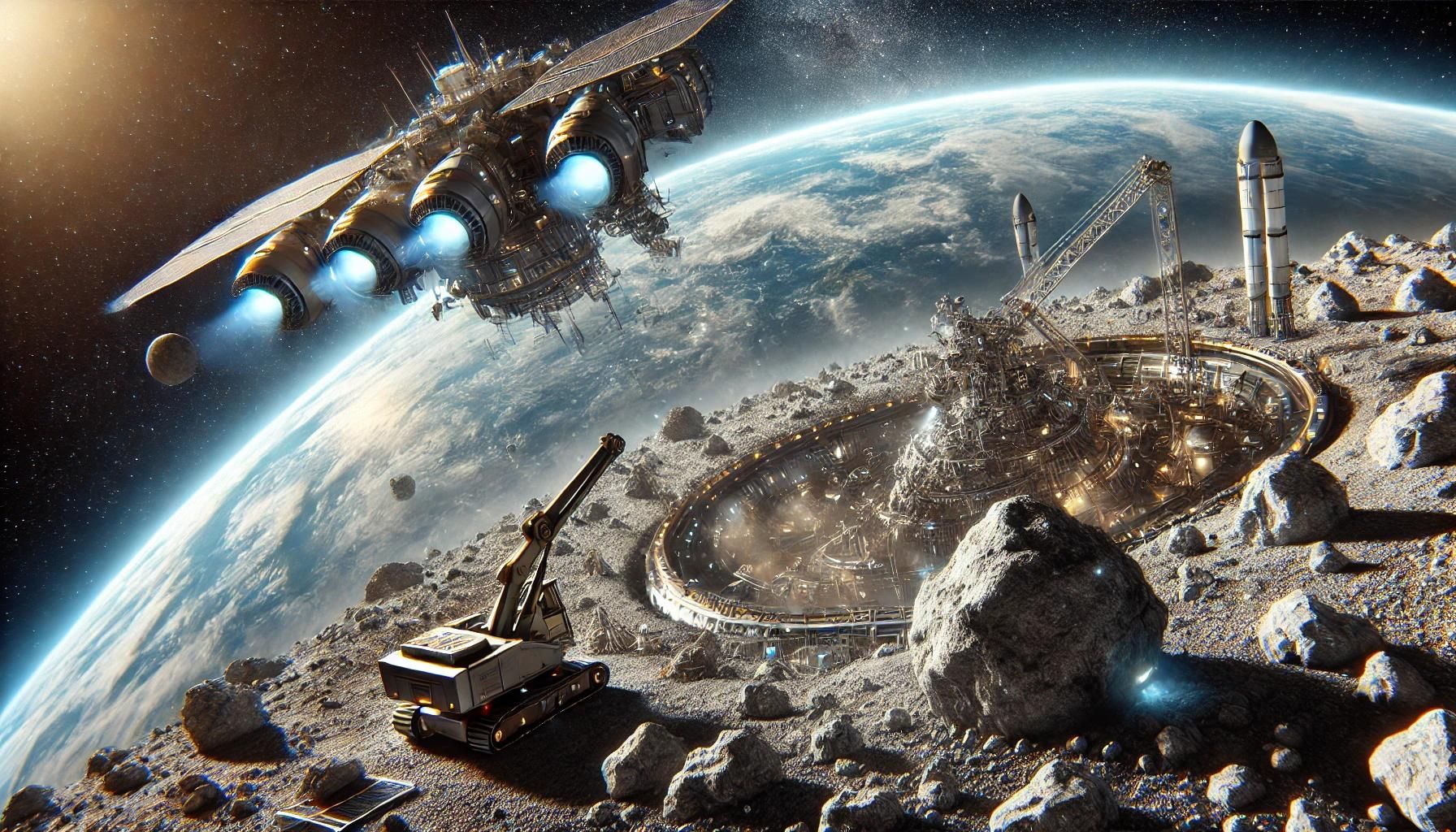Environmental Impact of Space vs. Earth Mining
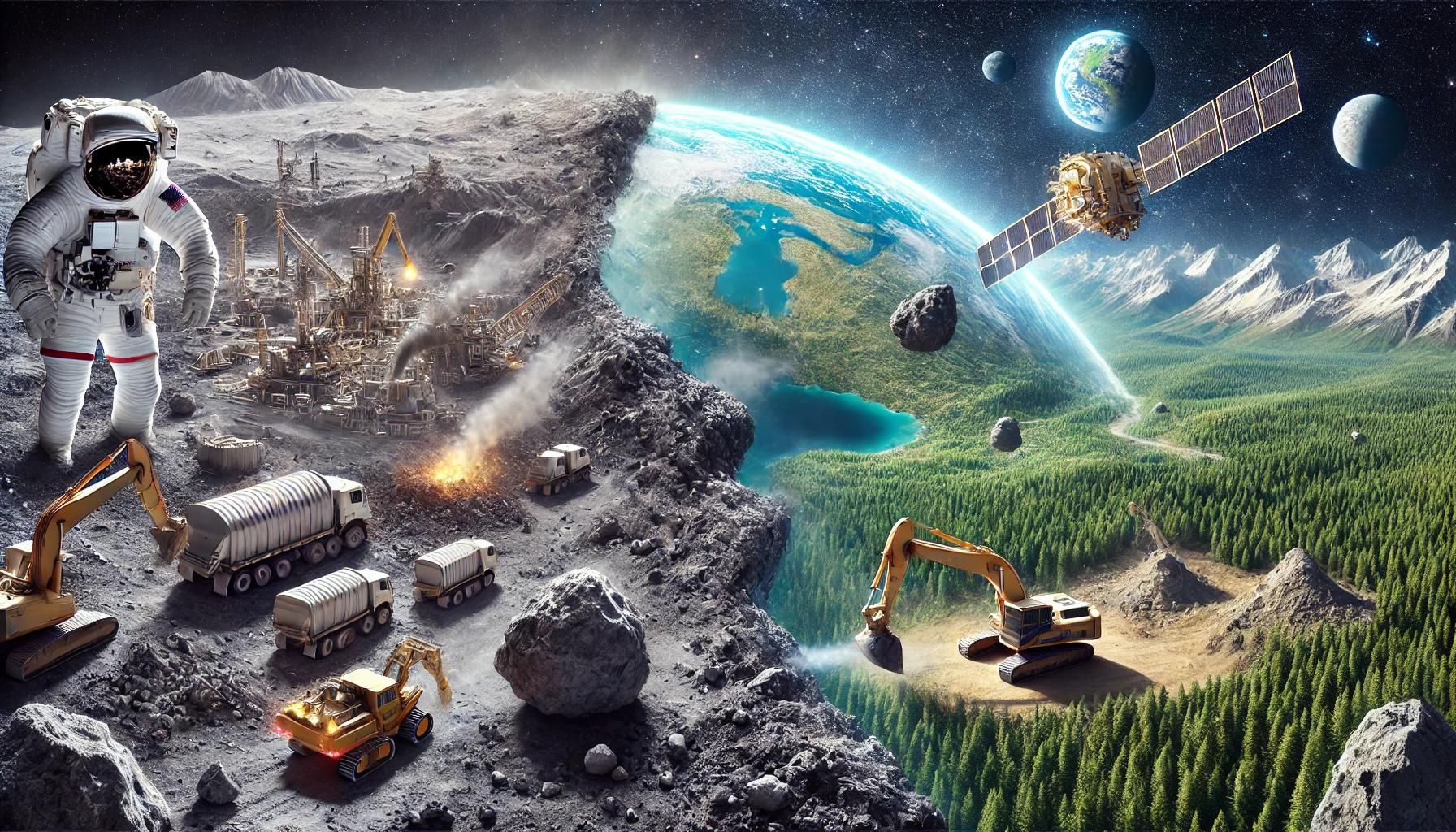
Asteroid mining is being hailed as the next frontier in resource extraction, promising access to vast reserves of precious metals, water, and other valuable materials. As terrestrial resources become increasingly scarce and the environmental costs of traditional mining mount, space mining presents an enticing alternative. This article explores the environmental benefits of mining asteroids compared to Earth, the challenges and environmental considerations for space mining, and the ethical and regulatory frameworks needed to govern this emerging industry.
Environmental Benefits of Mining Asteroids Compared to Earth
Reduced Ecological Footprint
- No Ecosystems to Disrupt: Unlike Earth, asteroids are barren rocks with no ecosystems to disturb. Mining activities on Earth often lead to deforestation, habitat destruction, and loss of biodiversity. For example, nickel mining in Indonesia has led to significant deforestation and pollution of water supplies, impacting local communities and wildlife. In contrast, extracting resources from lifeless asteroids avoids these environmental damages.
- Less Pollution: Terrestrial mining operations generate substantial pollution, including toxic waste, heavy metals, and greenhouse gases. Processing ores on Earth often involves harmful chemicals and generates large amounts of waste. Space mining, conducted in the vacuum of space, eliminates these pollution sources. Waste materials can be left on the asteroid or disposed of in space, far from Earth’s biosphere.
Preservation of Terrestrial Resources
- Conservation of Land and Water: Mining on Earth consumes vast amounts of land and water. The water-intensive processes used in mining and ore processing deplete local water resources, while land degradation from open-pit mines and tailing dams scars the landscape. By sourcing materials from asteroids, we can reduce the strain on Earth’s finite land and water resources.
- Sustainable Resource Supply: Asteroids contain abundant supplies of metals like nickel, platinum, and cobalt, which are critical for modern technologies and the clean energy transition. For instance, the International Energy Agency predicts a significant increase in demand for these metals due to the growth of electric vehicles, renewable energy systems, and battery storage. Space mining can provide a steady supply of these materials without depleting terrestrial reserves, supporting long-term sustainability.
Challenges and Environmental Considerations for Space Mining
Technological and Operational Challenges
- Mining in Microgravity: Conducting mining operations in the microgravity environment of space presents unique challenges. Traditional mining equipment designed for Earth’s gravity may not function effectively in space. Innovative technologies and techniques must be developed to anchor mining machinery, handle loose regolith, and process materials in a low-gravity context.
- Resource Identification and Extraction: Accurately identifying and extracting valuable resources from asteroids requires advanced remote sensing, prospecting, and robotic technologies. While missions like NASA’s OSIRIS-REx and Japan’s Hayabusa2 have demonstrated the feasibility of asteroid sampling, scaling these operations to commercial mining remains a significant hurdle.
Environmental Concerns
- Space Debris and Contamination: Mining activities in space could generate debris and contamination, posing risks to other spacecraft and missions. Improperly managed waste materials or fragments from mining operations could contribute to the growing problem of space debris, which threatens satellites and space stations.
- Asteroid Integrity: Large-scale mining operations could alter the structural integrity of asteroids, potentially causing fragmentation or destabilization. This could have unforeseen consequences, including altering the orbits of mined asteroids or creating hazardous debris fields.
Ethical and Regulatory Considerations
- Resource Allocation and Equity: Ensuring that the benefits of space mining are equitably distributed is a key ethical concern. As the industry develops, questions about who has the right to extract and profit from space resources must be addressed. The 1967 Outer Space Treaty, which prohibits sovereign claims over celestial bodies, provides a framework for space activities, but it lacks specific guidelines for resource extraction.
- Sustainable Practices: Establishing sustainable mining practices in space is crucial to prevent the depletion of extraterrestrial resources and ensure that future generations can also benefit from them. Ethical guidelines and regulatory frameworks must promote responsible resource management, avoiding the pitfalls of over-exploitation and environmental degradation seen in terrestrial mining.
Ethical Considerations and Regulatory Frameworks
Current Legal Frameworks
- Outer Space Treaty: The Outer Space Treaty, adopted in 1967, is the foundational legal document governing space activities. It stipulates that outer space, including the Moon and other celestial bodies, is the province of all humankind and prohibits national appropriation. However, it does not explicitly address the commercial extraction of space resources, leaving a legal grey area.
- Artemis Accords: The Artemis Accords, led by NASA and signed by multiple countries, aim to establish a framework for lunar exploration and resource utilization. They propose the creation of safety zones around lunar operations to prevent interference and promote international cooperation. While primarily focused on lunar activities, the principles of the Artemis Accords could inform broader space mining regulations.
Developing Comprehensive Regulations
- International Collaboration: Crafting a comprehensive regulatory framework for space mining will require international collaboration and consensus. A unified approach can ensure that resource extraction is conducted responsibly and equitably, avoiding conflicts and fostering cooperation.
- Resource Rights and Ownership: Clear guidelines on resource rights and ownership are essential to provide legal certainty for companies investing in space mining. Defining how resources can be claimed, extracted, and traded will help establish a stable and predictable legal environment.
- Environmental Protections: Regulations must include provisions for environmental protection, even in the seemingly barren context of space. This includes managing waste, preventing contamination, and ensuring that mining activities do not create new hazards or significantly alter celestial bodies.
- Ethical Considerations: Ethical guidelines should prioritize the long-term sustainability of space resources and the equitable distribution of benefits. This involves setting limits on extraction rates, ensuring that mining does not harm potential future uses of space, and addressing the needs and rights of all humanity.
Asteroid mining offers significant environmental benefits compared to terrestrial mining, including reduced ecological footprint and the conservation of Earth’s resources. However, it also presents unique challenges and environmental considerations that must be addressed to ensure sustainable and ethical practices. Developing a comprehensive regulatory framework that promotes international collaboration, clear resource rights, environmental protections, and ethical considerations is crucial for the future of space mining. As the industry advances, balancing the economic potential of asteroid mining with its environmental and ethical implications will be key to unlocking its full promise.
